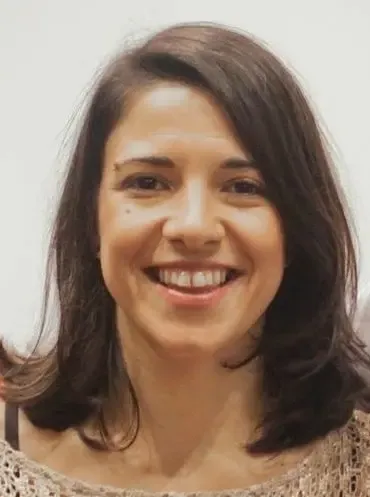Global Health alumna Rosario went from a clinical career to doctoral studies at KI
Hear from alumna Rosario about her academic and professional journey to the Global Health Master's Programme at Karolinska Institutet and a PhD.

Name: María del Rosario Alsina
KI programme: Master’s Programme in Global Health
Year of graduation: 2020
Based: Stockholm, Sweden
Current role: PhD student at the Department of Global Public Health
What is your professional background?
I am a medical doctor. I completed the paediatrics residency at Garrahan Hospital in Buenos Aires, Argentina. After my training, I specialised in neurodevelopment and worked clinically for ten years.
At the same time, I was always interested in global public health research, which led me to complete a one-year research scholarship. After this, I decided to do a master’s programme. I already knew about KI’s excellent academic reputation, so the Global Health Master’s Programme was my first choice.
What did you do after graduation from the Master’s Programme in Global Health at KI?
I applied for a research assistant position at the Department of Global Public Health. I worked as an assistant at the master’s programmes in Global Health and Public Health for over two years. This experience allowed me to work closely with programme directors and the director of education, who taught me a lot about public health research as well as teaching in higher education. This contributed to my wanting to pursue a PhD. I also wanted to consolidate the knowledge I acquired during the master’s programme and expand my research skills.
What is your PhD research about?
My PhD is nested within the ALERT research consortium, a maternity-based quality improvement and implementation science project in Benin, Malawi, Tanzania, and Uganda. It aims to reduce in-facility perinatal mortality and morbidity. Within the consortium, my PhD studies focus on bereavement care after stillbirth.
I came to work on this topic due to my previous clinical experience. During my paediatrics training, I worked closely with terminally ill children and their grieving families. This experience taught me that supporting families to make their own informed decisions is crucial to promote a healthy grieving process and motivated me to continue working on this issue from a global public health perspective.
What in your KI education has benefited your work as a PhD student the most?
The research methodology course was my favourite. It provided the basic knowledge and practical skills I needed to conduct a qualitative study for my master’s thesis. Furthermore, the exposure to different qualitative methods was very useful when developing and planning the qualitative studies within my PhD. The programme also has a strong focus on peer-reviewing and presenting your work in different ways, which are great assets to a PhD student.
What are the main rewards and challenges of your doctoral education?
So far, travelling to participating countries to get acquainted with the study setting has been an enriching experience, both personally and professionally. However, I would say the greatest reward is finding really good friends and colleagues at the Department. Our PhD room is a great place to be when you are stuck with something. You can receive advice, feedback, or just work collaboratively to solve a problem. I think the main challenge of being a PhD student is achieving a good work-life balance.
What are your plans for the future?
I am almost halfway through my PhD and my defence is scheduled for around February 2027. After graduation, I would like to continue working in research as a post-doc. I would like to engage in more qualitative studies, implementing different methodologies and I would also like to expand my research profile to other areas, such as childhood disabilities.
Any recommendations for current students of the programme who are interested in a similar career path?
I would suggest working hard and getting involved in student life. The Department of Global Public Health encourages and supports student-driven activities, so this could be a great way to meet and network with PhD students, research assistants, and more senior researchers. Also, reach out to your supervisor for career advice and potential work opportunities.
My general advice to students of the Global Health programme would be to enjoy your time as a master’s student. Attend the lectures and read as much as possible. In-class discussions are incredibly enriching, especially if you prepare in advance. Also, work closely with your classmates. You can create study groups to revise course content, establish forums to discuss methodological and ethical aspects of the research or practice, and provide and receive peer feedback. My friends from the programme were an invaluable source of support and inspiration during my studies, and they still are to this day.
Lastly, do you have any tips for prospective Global Health students?
I recommend investing time in writing a good motivation letter. You can ask close friends and colleagues for feedback before submission to check that the letter represents who you are.
Also, Stockholm is a beautiful city with plenty of benefits for students. Make sure to reach out to the student union and take part in their activities. In terms of the programme, be prepared to work hard.
